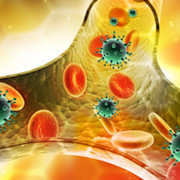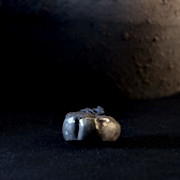- Science News
- Frontiers news
- Chief Editor Marc Strous is made a Fellow of the Royal Society of Canada
Chief Editor Marc Strous is made a Fellow of the Royal Society of Canada

Prof. Marc Strous
Prof. Marc Strous is a renowned microbial ecologist and Specialty Chief Editor of Microbial Physiology and Metabolism in Frontiers in Microbiology, together with Prof. Biswarup Mukhopadhyay. In 2020, Frontiers in Microbiology marked its tenth year anniversary. Prof. Marc Strous' vision for the field is to widen the focus on inter-microbial interactions, and utilizing large scale bioinformatics and data science to investigate these minute relationships in detail.
Awards Abound
Prof. Marc Strous extraordinary capacity for research innovation is not contained to the laboratory – he has supervised 39 graduate students and postdoctoral fellows, been elected to the Young Academy of Arts and Sciences in the Netherlands, won the ISME Young Investigators Award, and, most recently, he was appointed a Fellow of the Royal Society of Canada in 2020. In his Fellowship role, he will continue to contribute to and engage the public on current scientific research and innovation, and hopes to act as a champion for basic research and inclusivity within scientific disciplines.
A Remarkable Career
Prof. Marc Strous is a Delft University alumnus, who brings a cross-continental wealth of research experience to his role at the journal. Prof. Marc Strou’s scientific expertise and interests cover a wide range of subjects, from proteomics and bioinformatics, to metagenomics and bioenergetics.
Originally having trained as a Chemical Engineer at Delft, during his PhD Marc successful identified bacteria capable of oxidizing ammonia without oxygen. He then used these bacteria to remove ammonia from wastewater, a process subsequently deployed industrially worldwide. Following his PhD, he moved to Radboud University in the Netherlands, where he led his team to an extraordinary discovery – the identification of bacteria capable of producing oxygen – a biochemical reaction rarely occurring in nature outside of photosynthesis.
Whilst at Radboud and later Max Planck led his team in investigating interactions between microbes, shedding light on two previously unknown symbiotic reactions; the first between bacteria and peat mosses, and the second between bacteria and Breviates, unicellular microorganisms related to animals and fungi. His interests also lie in applying his microbiological and engineering knowledge to pressing environmental and political issues, such as climate change.
In his current position as Chair in Energy Bioengineering at The University of Calgary, his work is dedicated to developing biotechnology to directly capture carbon dioxide from the air and convert it into useable products using metabolic processes adapted from alkaline soda lakes. This research prompted him to co-found Synergia Biotech, which uses clean technology to create a blue pigment for the food, beverage, health and wellness industries. A jack-of-all-(scientific)-trades, Marc has also developed an algorithm for estimating natural isotope abundances of individual species within microbial consortia, has discovered and published the genomes of a multitude of novel bacterial species, and has recently employed the use of long-read nanopore sequencing in his Calgary lab.
We are proud to have Prof. Marc Strous steering our Microbiology ship, and look forward to many years of collaboration with him ahead. If you’d like to read more about Marc’s research, please check out his most recent Frontiers in Microbiology article on a proteolytic bacterium isolated from hypersaline soda lakes here.








